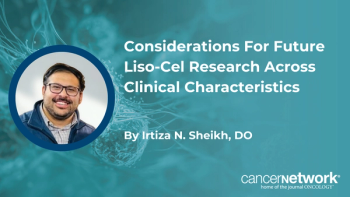
Oncogenic Drivers in Lung Cancer
From the 2014 ASCO Annual Meeting, this internationally renowned lung cancer expert discusses oncogenic driver mutations in lung cancer.
From the 2014 ASCO Annual Meeting, internationally renowned lung cancer expert David P. Carbone, MD, PhD, discusses his recent study, “Oncogenic and sorafenib-sensitive ARAF mutations in lung adenocarcinoma,” published in the Journal of Clinical Investigation, in which he and coauthors suggest an alternate approach to discovering driver mutations.
With this year being the 50th anniversary of ASCO's first annual meeting, Dr. Carbone also tells us about the early involvement with ASCO of his father, the eminent oncologist Paul Peter Carbone, and highlights some of his father's research in hematology.
Newsletter
Stay up to date on recent advances in the multidisciplinary approach to cancer.










































